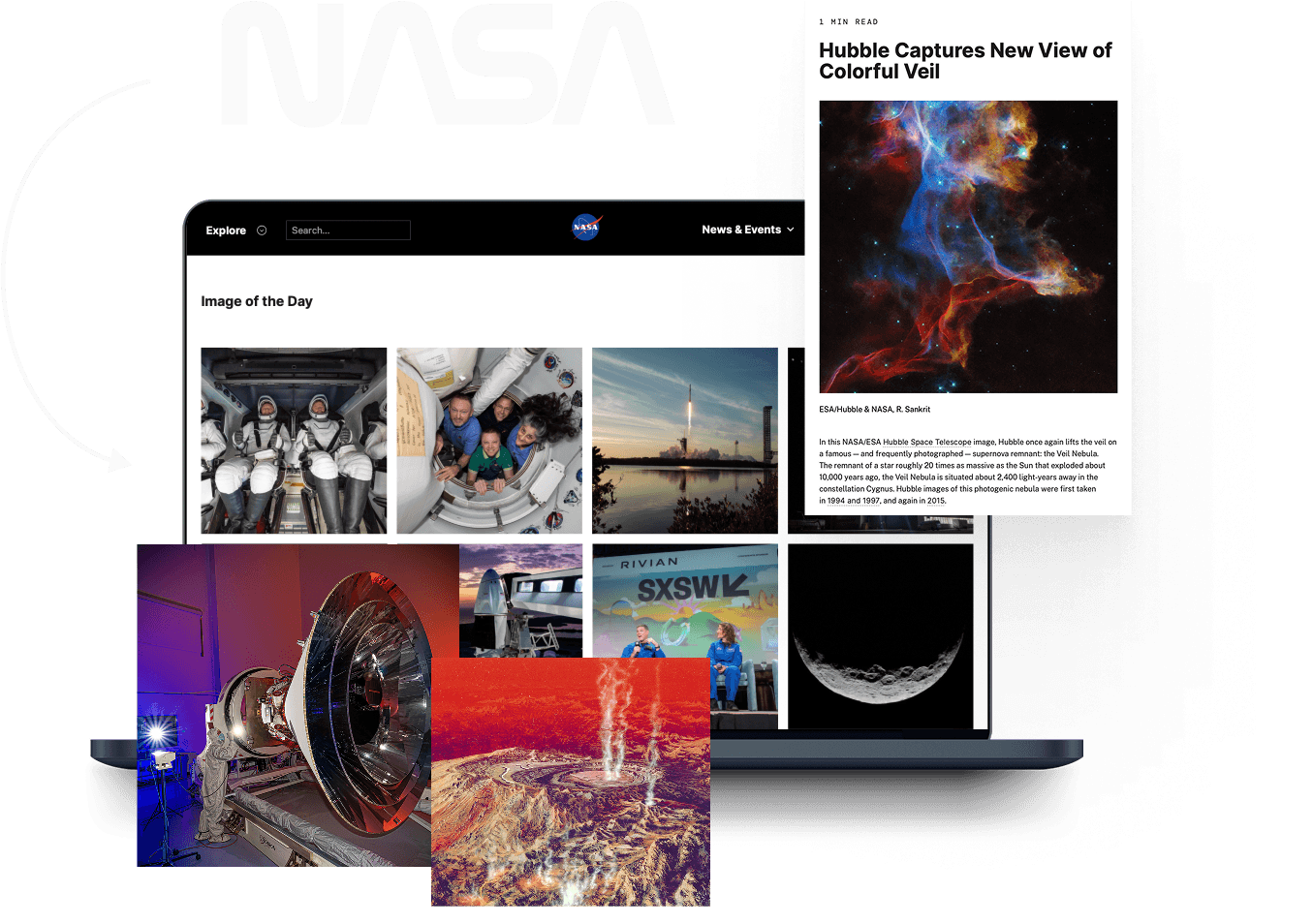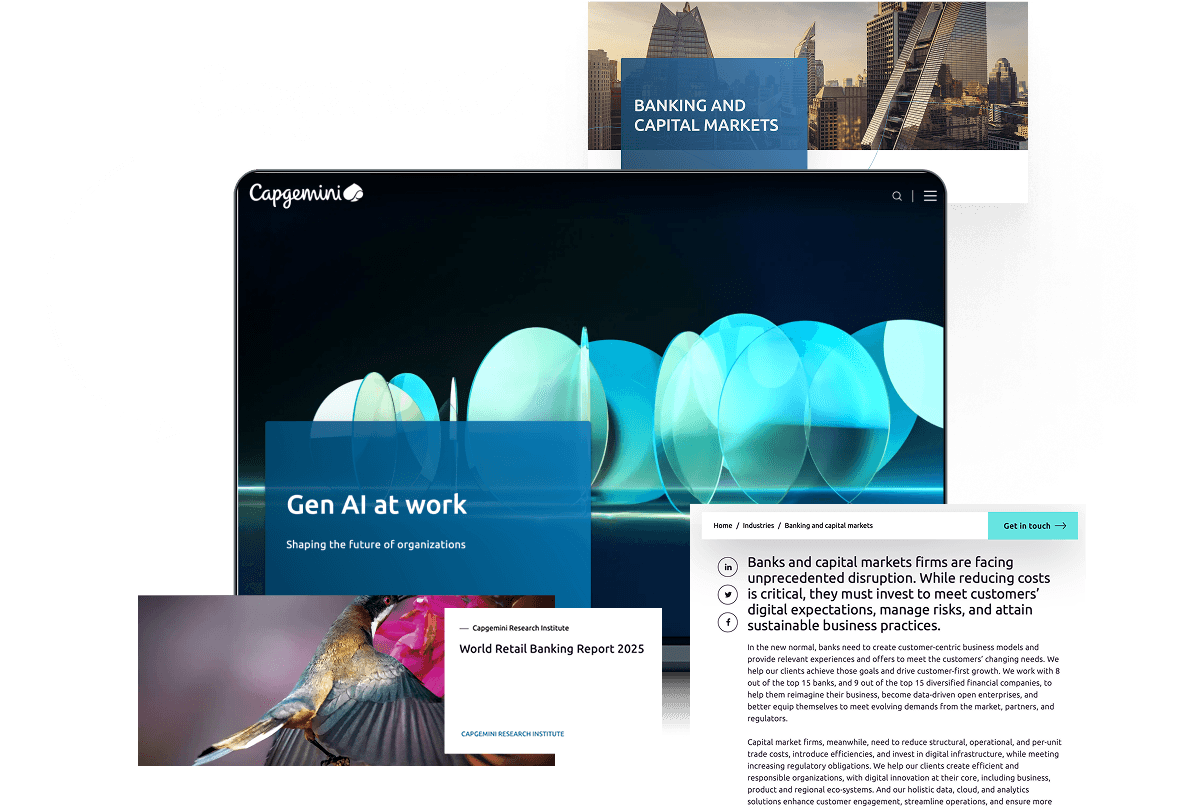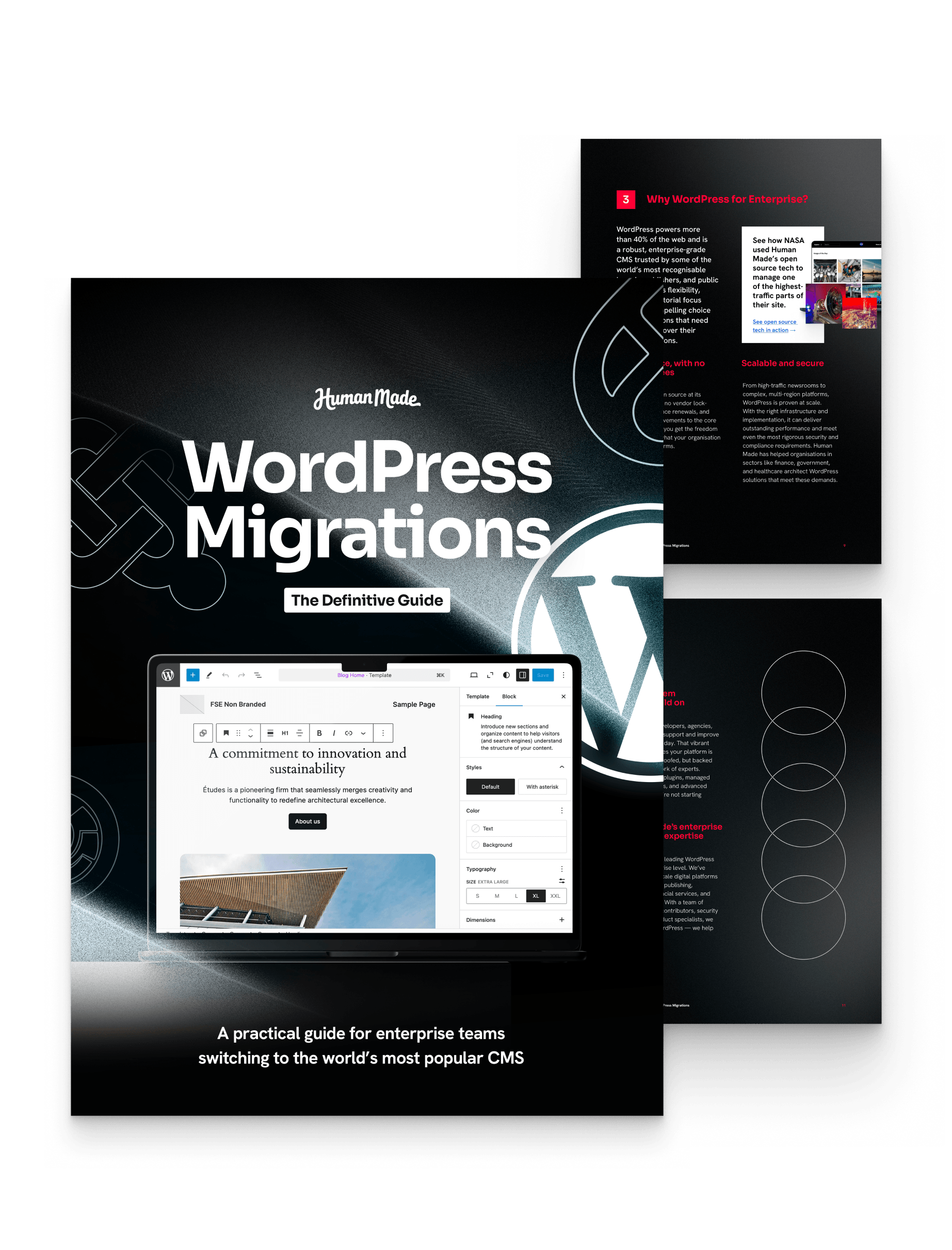When global brands, leading publishers, and public institutions are replatforming, one name consistently rises to the top: WordPress. Powering more than 40% of the web, WordPress has long since outgrown its origins as a blogging platform. Today, its flexibility, scale, and editorial focus make it a compelling choice for organisations that need more control over their digital operations.
So, why are enterprises migrating to WordPress? Let’s take a closer look.
1. Migrating away from costly, restrictive CMSs
For enterprises looking to move away from costly, restrictive platforms, WordPress offers freedom from annual licence fees, vendor lock-in, and hidden costs.
Instead, enterprises get a platform that is continually improving thanks to thousands of contributors worldwide. You’re in control of how you use, extend, and scale WordPress, with the flexibility to shape it around your exact requirements.
For enterprises, the key benefits of migrating to an open source platform involve:
- Transparency and reliability: with a fully open codebase, organisations can review, audit, and validate the software themselves – ensuring it’s secure, reliable, and fit for purpose.
- Scalability without limits: as the business grows, open source grows with it. There are no technical or licensing constraints holding you back from scaling globally.
- Community-driven security: WordPress benefits from a global community of developers constantly monitoring, testing, and improving the platform. Vulnerabilities are quickly identified and patched, reducing risks for organisations operating at scale.
2. Scaling with confidence post migration
From high-traffic newsrooms to complex, multi-region platforms, the benefits of migrating to WordPress is proven at scale across industries. With the right infrastructure and migration plan, it can deliver outstanding performance and meet even the most rigorous security and compliance requirements.
How WordPress is designed to perform at scale for enterprises:
- Proven load handling: reliable WordPress hosts support surges in traffic during major events, product launches, and global campaigns.
- Compliance-ready: with frameworks for GDPR, ISO standards, and accessibility guidelines (WCAG), WordPress can meet strict regulatory requirements.
- Enterprise hosting ecosystems: providers like Altis or WordPress VIP deliver managed security, uptime guarantees, and tailored infrastructure.
Human Made has helped organisations migrate to WordPress in sectors like finance, government, and healthcare architect solutions to meet these demands.
3. Empowering editorial teams post-migration
WordPress was created to make publishing easier, and that ethos still holds true. By moving to this CMS, editors and marketers benefit from intuitive interfaces, custom workflows, and real-time collaboration tools that let them create, manage, and optimise content without relying on developers. It supports a culture of experimentation and speed.
For content-heavy organisations, WordPress offers unique advantages that help teams work more efficiently, including:
- Faster time-to-market: editors can spin up landing pages, microsites, or campaigns in hours, not weeks, with zero code experience needed.
- Content personalisation: plugins and integrations like Accelerate offer the tools to run A/B experiments on headlines, call to actions or layouts directly inside the editor.
- Global collaboration: multilingual publishing tools and workflows enable distributed teams to create and coordinate content seamlessly.
- AI and workflow automation: reduce repetitive tasks and allow AI to support content creation, structure, translation and approvals without disrupting editorial control.
4. Flexibility that legacy platforms can’t match
Whether you’re running a legacy CMS that’s approaching end-of-life, or a proprietary platform that’s no longer serving your needs, migrating to WordPress can offer more flexibility, lower costs, and improved editorial efficiency.
Flexibility is at the heart of WordPress, making it easy for enterprises to adapt the platform to their needs, including:
- REST API extensibility: for custom business logic, third party integrations, and custom data formats, giving you more autonomy over how your site works.
- Headless flexibility: benefit from a top-tier technology stack, where innovative front-end frameworks and channels can iterate quickly, creating next-gen experiences for users.
- Enterprise CRM integrations: a vast plugin ecosystem allows you to connect with platforms like Salesforce, marketing automation with HubSpot, or commerce solutions such as WooCommerce.
5. Following in the footsteps of enterprise frontrunners
Many enterprises migrate to WordPress after seeing how it performs for the world’s leading institutions – from The White House and Capgemini to Standard Chartered and Skyscanner. It supports multilingual, multisite, and highly customised digital experiences while remaining easy to use and maintain.
What makes migrating to WordPress compelling for these institutions is:
- Breadth of use cases: the WordPress Showcase is testament to how enterprise brands across sectors trust the platform day-in-day-out.
- Resilience at scale: used by the world’s busiest websites, handling millions of visits daily with high uptime and stability.
- Innovation-friendly: leading brands use it to experiment with modern storytelling formats, new technologies, and audience engagement strategies.
6. Joining a future-proof WordPress ecosystem
Migrating to WordPress means joining a thriving ecosystem that ensures your platform is never static. Thousands of developers, agencies, and contributors support and improve WordPress every day to ensure the platform is not only future-proofed, but backed by global network experts.
When migrating to WordPress, you’re not just switching to any CMS. For enterprises, this ecosystem brings unique advantages, like:
- Access to world-class talent: thanks to a global community, it’s far easier to hire experienced WordPress developers than specialists in niche proprietary systems.
- Constant innovation: regular feature releases, modern tooling (like Full Site Editing), and rapid adoption of web standards keep your platform ahead of the curve.
- Enterprise support models: organisations can choose from a wide range of support options, from managed hosting platforms with SLAs to specialised agencies that provide strategic guidance and technical expertise.
This thriving community ensures that your platform isn’t just sustainable — it’s continually evolving with the web.
Your partner for enterprise WordPress migrations
Human Made is a leading WordPress agency at enterprise level. We’ve delivered successful migrations and large-scale digital platforms for clients across publishing, government, financial services, and higher education. With a team of WordPress core contributors, security experts, and product specialists, we don’t just use WordPress — we help shape its future.
If you’d like to explore how to migrate smoothly from any platform to WordPress, we’re here to help. Get in touch.



